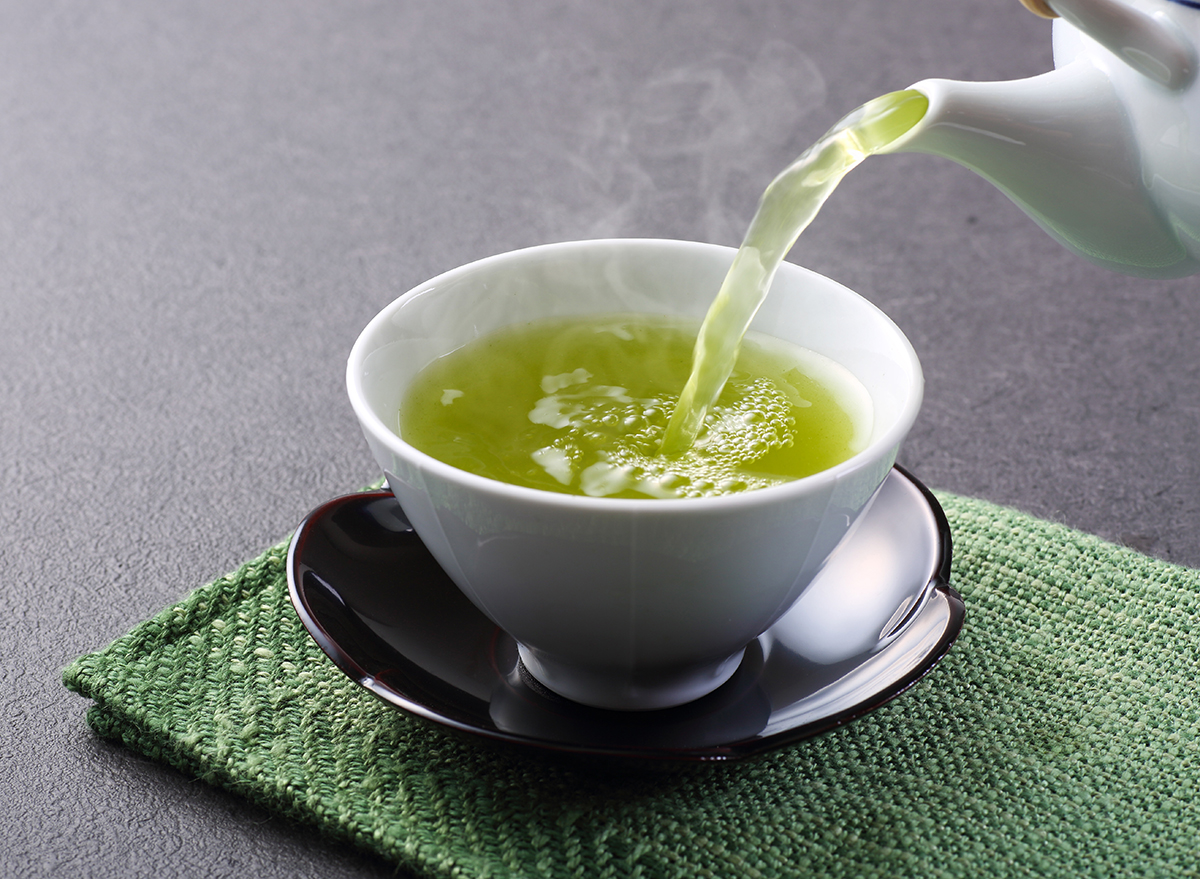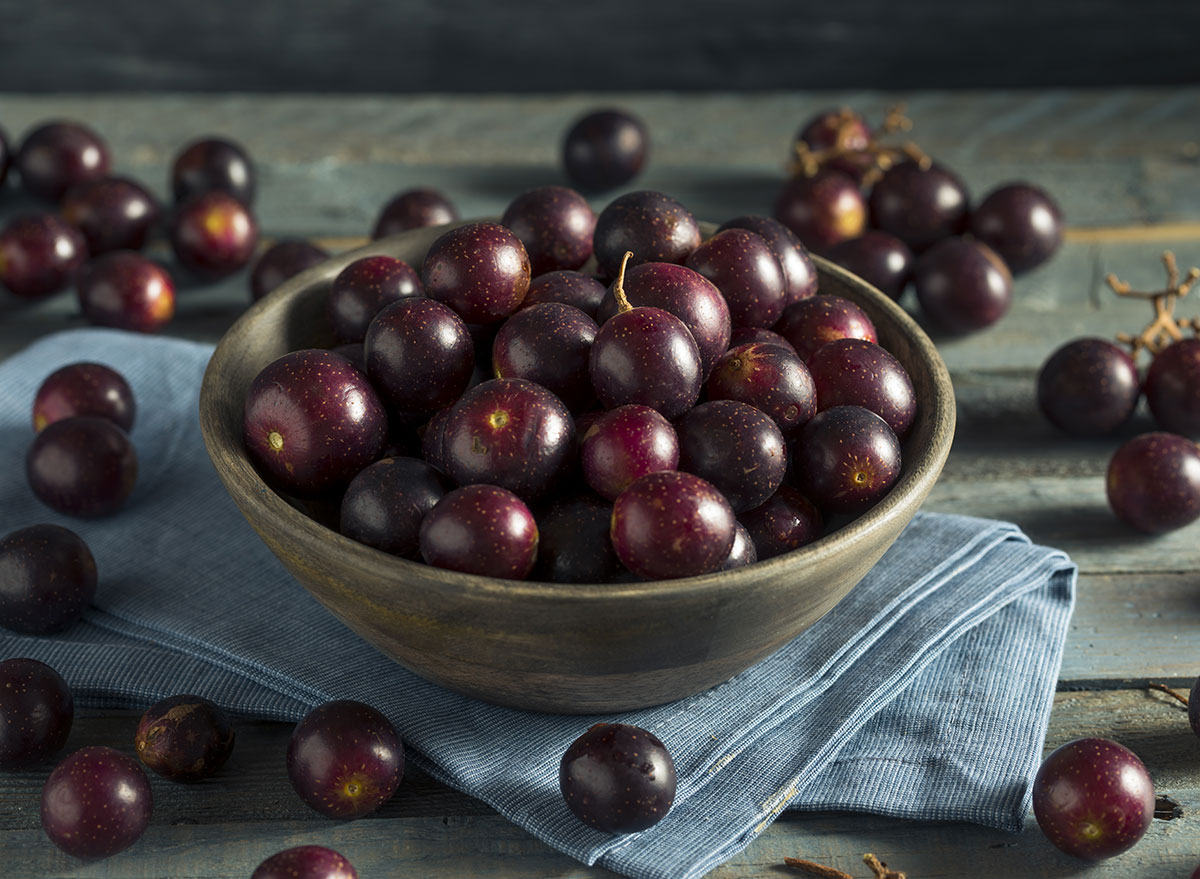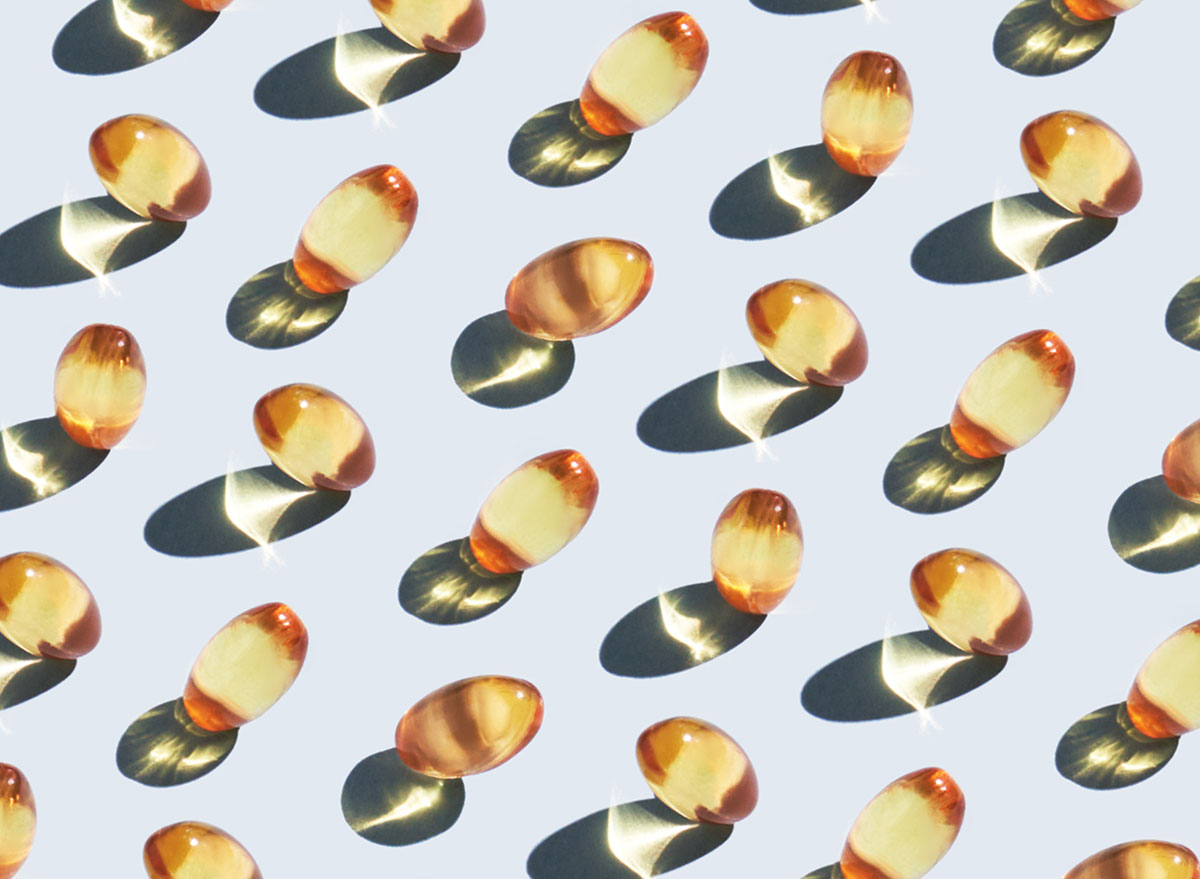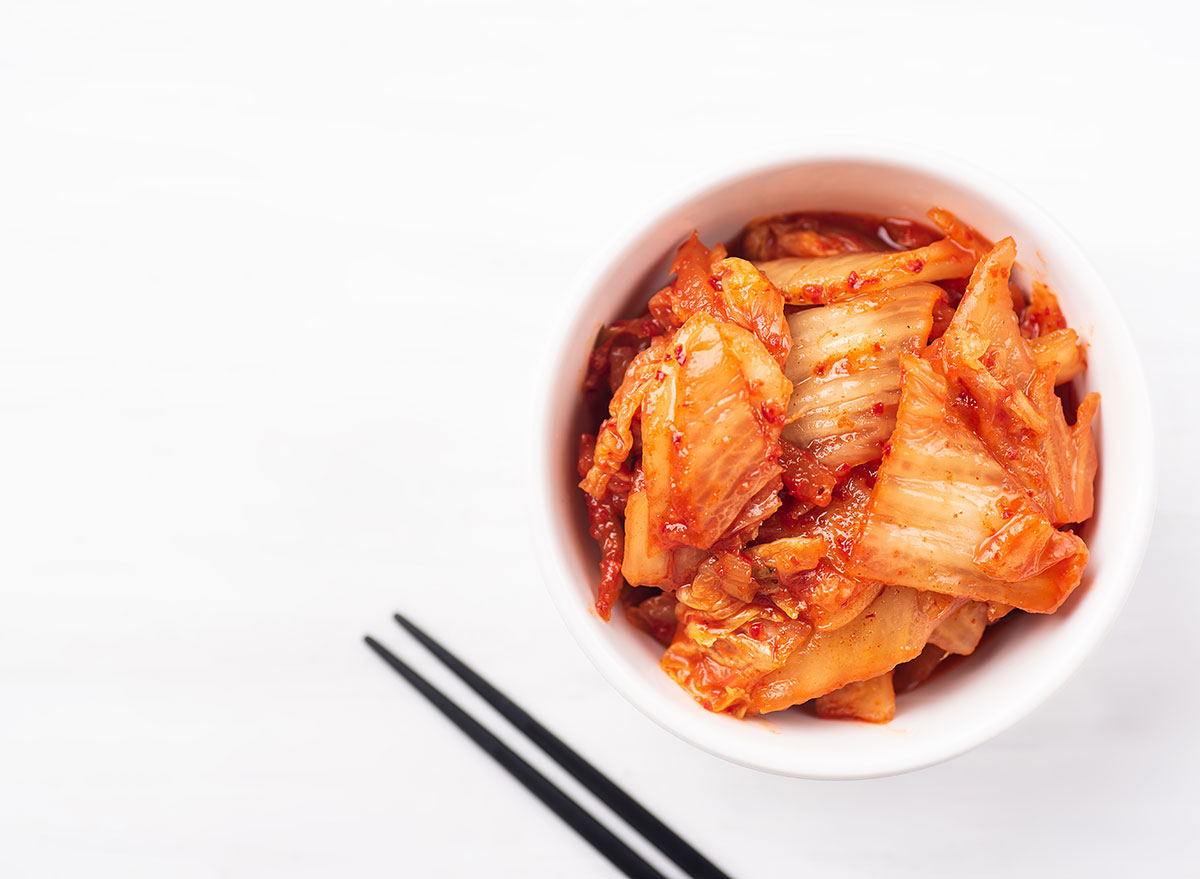Essential Grocery Store Items That Can Help You Combat COVID

While COVID-19 vaccinations are ramping up across the country, many Americans still have to worry about catching the deadly virus. And the truth is, life won't return to "normal" until at least Christmas 2021, leading infectious disease expert Dr. Fauci predicted earlier this week.
In the meantime, it's best to stay safe and prepared at home by stocking up on grocery store essentials that will keep you and your family healthy. In fact, research has shown that common foods such as green tea and supplements like zinc may help boost your immune system, help combat the spread of the SARS-CoV-2 virus, and also lessen the severity of COVID-19 symptoms.
With this in mind, here are the 5 essential grocery store items that can help you and your family combat COVID-19. And for more helpful shopping tips, make sure you're aware of these grocery shortages to expect this year, according to experts.
Green Tea

A recent study co-authored by De-Yu Xie, a professor of plant and microbial biology at North Carolina State University, suggests that specific chemical compounds in green tea have the ability to inhibit the main enzyme, or protease (Mpro), in SARS-CoV-2—aka the virus that causes COVID-19.
"Green tea has five tested chemical compounds that bind to different sites in the pocket on Mpro, essentially overwhelming it to inhibit its function," Xie said. (If the protease enzyme is inhibited, the virus can't replicate. The protease inhibitors prevent the virus from forming mature particles.)
It's important to note that the research is still in its early stages, according to Xie. "To demonstrate the medicinal applications of these compounds and extracts, it has a long way to go," he told Eat This, Not That!
Dark Chocolate

Yes, it's true! In the same study, dark chocolate was found to be another common grocery item that showed promising powers against the Mpro in the SARS-CoV-2 virus thanks to its anti-inflammatory and antioxidant properties.
Computer simulations in the study showed that the plant-based chemical compounds in dark chocolate and cacao powder were able to bind to different portions of Mpro. Lab experiments further showed that the compounds could reduce Mpro's activity by about half. In other words, dark chocolate may have the ability to lessen the severity of COVID-19's spread in the body—but it likely wouldn't be able to stop it completely on its own.
Bottom line: Eating a few squares of dark chocolate weekly isn't a bad idea—especially if it doesn't include any added sugars.
Muscadine Grapes

Two varieties of muscadine grapes were also observed in the study. In the lab experiments, the chemical compounds found in two types of the southern grape breed were able to completely inhibit Mpro's function.
"Muscadine grapes contain these inhibitory chemicals in their skins and seeds," Xie said in a statement. "Plants use these compounds to protect themselves, so it is not surprising that plant leaves and skins contain these beneficial compounds."
Vitamin D

Several studies have shown that vitamin D—specifically D3—may help to lessen the severity of COVID-19 symptoms. Researchers and doctors believe this is partly because of vitamin D's ability to support your immune function. Low levels of the vitamin can put you at greater risk of infection and cause other issues such as impaired wound healing. The body naturally produces vitamin D3 from sun exposure, which is why it's important to take a supplement during the winter months when there's less sunlight.
In an Instagram Live interview with Jennifer Garner, Dr. Fauci said: "I would not mind recommending—and I do it myself—taking vitamin D supplements."
Zinc

As is the case with vitamin D, the mineral zinc is also crucial in supporting the immune system. In a different Eat This, Not That! article, Dr. Cedrina Calder, MD said zinc can help the body fight against pathogens.
"Higher risk of infection and adverse outcomes coincide with populations with chronic diseases and elderly who are at risk of zinc deficiency," researchers wrote earlier this year in Advances in Integrative Medicine. "Through several mechanisms zinc may prevent, reduce severity and duration of symptoms."
While more research needs to be done in order to find direct evidence, it may not hurt to incorporate more of the mineral into your diet. Always be sure to check with your doctor first before taking any supplements.
Melatonin

Yes, the common sleep aid supplement Melatonin, which you can find in your local grocery store's pharmacy section, can block the production of pro-inflammatory cytokines (which lead to adverse COVID-19 symptoms) while also increasing the number of anti-inflammatory cytokines (which are essential for proper immune function).
"There were a few studies in Nov 2020 showing that Melatonin is associated with improved outcomes in severe COVID-19," Brittany Busse, MD, associate medical director at WorkCare, recently told Eat This, Not That!. She suggests taking melatonin at night with vitamin B6, as the two could act synergistically together since both have the ability to block the production of pro-inflammatory cytokines.
Fermented foods containing Vitamin K2

Vitamin K2—which is found naturally in fermented vegetables (such as sauerkraut and kimchi), plant-based meat alternatives (like tempeh), dairy and animal products, as well as in supplement form—has also been shown to suppress the production of pro-inflammatory cytokines, Dr. Busse recently told Eat This, Not That!. "These pro-inflammatory cytokines are responsible for many of the severe symptoms associated with COVID-19."
It's been hypothesized that K2 supplementation could reduce inflammatory cytokine production and, in part, help regulate the immune response to SARS-CoV-2.
However, before taking a Vitamin K2 supplement, consult your doctor, considering it can support blood clotting and should not be taken by anyone on blood thinners or with a history of clots, Dr. Busse says.
For more healthy tips during these times, make sure to check out these happy belly foods that support your immunity, according to science.








